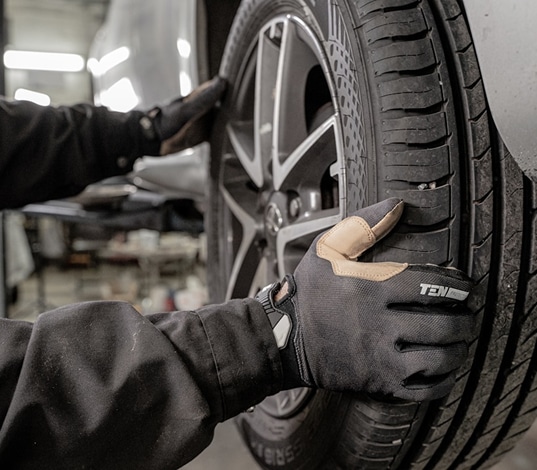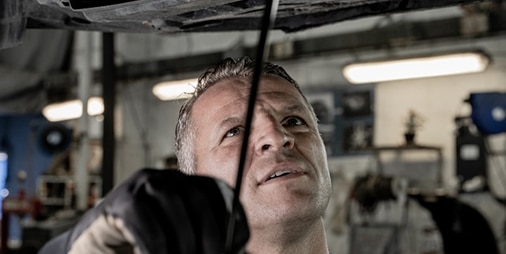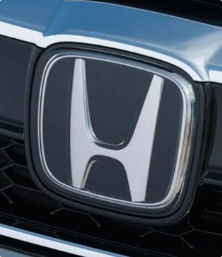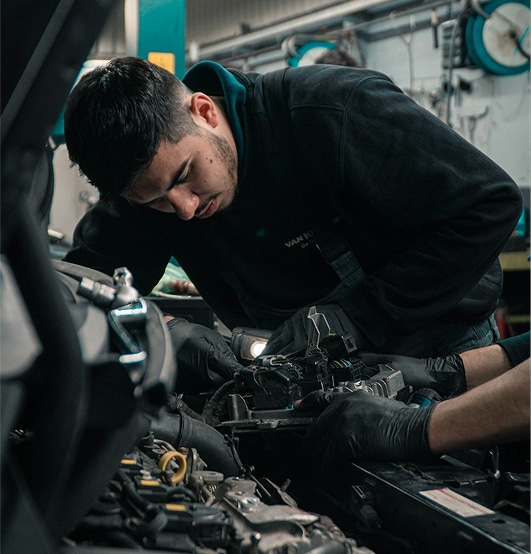Reliable Brake Repair and Service in Greater Atlanta
Blue Ridge Automotive delivers professional brake repair for vehicles throughout Greater Atlanta, combining technical expertise with honest service. Our certified technicians diagnose and correct brake system issues using quality components and proven methods. Contact Blue Ridge Automotive today to schedule your brake inspection.

Comprehensive Brake System Service for Atlanta Drivers
Worn brake components create unsafe stopping distances and place unnecessary strain on connected suspension parts. Left unaddressed, minor pad wear progresses into rotor damage, caliper malfunction, and substantially higher repair costs. Blue Ridge Automotive provides thorough brake system diagnosis and correction for drivers throughout the metropolitan area.
Brake Pad Replacement
Friction material wears with each application, and most vehicles require pad replacement between 25,000 and 65,000 miles depending on driving conditions. Our technicians measure remaining material thickness and inspect for uneven wear patterns that indicate caliper or hardware problems.
Brake Rotor Resurfacing and Replacement
Rotors develop grooves, hot spots, and thickness variations that compromise braking consistency and produce pedal pulsation. We measure rotor specifications against manufacturer tolerances and recommend resurfacing when material permits or replacement when necessary.
Brake Fluid Exchange
Hydraulic fluid absorbs moisture over time, lowering its boiling point and reducing pedal firmness under heavy braking. Our fluid exchange service removes contaminated fluid from the entire system and replaces it with fresh fluid meeting your vehicle manufacturer's specification.
Brake Caliper Service
Calipers house the pistons that press pads against rotors, and seized or sticking calipers cause uneven wear and pulling during stops. Our service includes cleaning slide pins, replacing worn bushings, and rebuilding or replacing calipers that no longer function properly.
Brake Line and Hose Inspection
Steel brake lines corrode from road salt exposure while rubber hoses deteriorate internally, restricting fluid flow. We examine the complete hydraulic circuit for leaks, corrosion, and swelling that precede line failure.
Emergency Brake Adjustment
Parking brake cables stretch and rear brake shoes wear, reducing holding power on inclines. Proper adjustment restores function and ensures the emergency brake operates as a backup stopping system.

Automotive Brake Maintenance for All Vehicle Types
Strange noises during braking often indicate metal contact between worn pads and rotor surfaces, a condition that accelerates component damage. Spongy pedal feel suggests air in hydraulic lines or deteriorating rubber hoses that may fail without warning. Blue Ridge Automotive services brake systems on Asian, Domestic, and European vehicles across the region.












Brake work demands precision measurement, correct torque specifications, and components matched to your vehicle's requirements. Our technicians hold current certifications and receive ongoing training on brake system technology across all vehicle makes. We explain findings clearly, provide written estimates before proceeding, and stand behind completed repairs with warranty coverage.
Here are several reasons Atlanta area drivers select Blue Ridge Automotive for brake service:
- RepairPal Certified Excellence: As a RepairPal Certified shop, we've met stringent standards for technical expertise, customer satisfaction, and fair pricing, earning recognition as one of Metro Atlanta's best auto repair shops for brake service and maintenance.
- Comprehensive Warranty Protection: Every brake repair includes our 24,000-mile, 24-month, nation-wide warranty on parts & labor through TECHNET Professional, ensuring your brake work is protected whether you're commuting in Atlanta or traveling across the country.
- Trusted by Major Partners: Selected as an approved CarMax service provider and voted a 2022 Neighborhood Favorite on Nextdoor, we've proven our brake service quality to both national automotive retailers and local community members.
- Quality Parts & Transparent Pricing: We install brake components from reputable manufacturers that meet or exceed OEM specifications, with written estimates detailing all parts and labor costs upfront, multiple convenient Metro Atlanta locations make scheduling your brake service simple.
Blue Ridge Automotive offers complete mechanical service beyond brake work, addressing the full range of maintenance and repair needs for your vehicle. Our technicians diagnose and correct problems across all major systems, from engine internals to climate control. Whether your vehicle requires scheduled maintenance or unexpected repairs, our shops provide consistent quality throughout the Atlanta metropolitan area.
Here are the other services available at our locations:
Vehicle Makes We Service
Our technicians possess specialized knowledge of brake systems across Asian, domestic, and European vehicle platforms. Each manufacturer engineers unique caliper designs, rotor specifications, and electronic integration that require model-specific expertise. We maintain proper tooling and reference materials to service brakes correctly on all major makes.
Communities We Serve Across Greater Atlanta
Blue Ridge Automotive operates multiple locations to serve vehicle owners throughout the Atlanta region conveniently. Each shop maintains the same service standards, diagnostic equipment, and commitment to quality workmanship. Our technicians understand the driving conditions specific to this area, from stop-and-go commuter traffic to highway travel.
Here are the communities where our shops provide brake repair and other automotive services:
See What Our Customers Have To Say
Schedule Your Brake Inspection Today!
Functioning brakes represent the most critical safety system on any vehicle, and postponing inspection risks your safety and increases eventual repair costs. Blue Ridge Automotive provides honest evaluation of brake condition with clear explanation of any recommended service. Our technicians identify actual problems rather than selling unnecessary parts, building the trust that brings Metro Atlanta drivers back for all their vehicle needs.
Contact Blue Ridge Automotive to schedule brake service at the location most convenient for you. Our staff will answer your questions, explain the inspection process, and arrange an appointment time that fits your schedule.

















